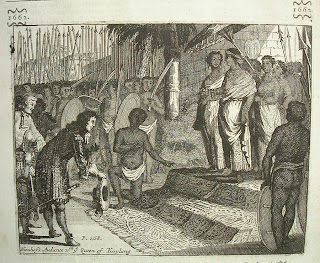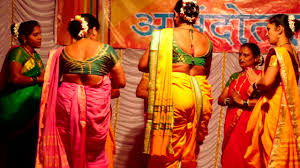Birthday celebrations, Greeting Cards and Cakes



"It is truly a special day in one's life. It is one of those days in the year when the Supreme descends into us - or when we are face to face with the Eternal - one of those days when our soul comes in contact with the Eternal and, if we remain a little conscious, we can feel His Presence within us. If we make a little effort on this day, we accomplish the work of many lives as in a lightning flash. That is why I give so much importance to the birthday - because what one gains in one day is truly something incomparable… My child, it is a very special day, for it is the day of decision, the day one can unite with the Supreme Consciousness. For the Lord lifts us on this day to the highest region possible so that our soul, which is a portion of that Eternal Flame, may be united and identified with its Origin.
This day is truly an opportunity in life…
It is one of those days when the Lord Himself opens the doors wide for us. It is as though He were inviting us to rekindle more powerfully the flame of aspiration. It is one of those days which He gives us. We too, by our personal effort, could attain to this, but it would be long, hard and not so easy. And this - this is a real chance in life - the day of the Grace."
- The Mother
"Let the new birth become manifest in your heart and radiate in calm and joy and take up all the parts of your being, mind and vision and will and feeling and life and body. Let each date in your life be a date of its growth and greater completeness till all in you is the child of the Mother. Let the Light and Power and Presence envelop you and protect and cherish and foster, till all in your inner and outer existence is one movement and an expression of its peace and strength and Ananda."
- Sri Aurobindo
History of Greeting Cards can be traced back to the ancient Chinese tradition of sending goodwill messages on a New Year. Early Egyptians too are believed to have made used papyrus scrolls to express greetings to dear ones. During early 1400 the tradition of exchanging handmade paper greeting cards developed in Europe. Whereas Germans at are known to have printed New Year’s greetings from woodcuts.
The progression in printing technology and automation besides introduction of postage stamps in 1850s helped to make greeting cards more reasonably priced. No wonder, they soon became popular means of personal communication.
Nevertheless, praise for the start of Greeting Card industry in US is given to Louis Prang, a German immigrant who started a small lithographic business near Boston in 1856.
Improved challenge during World War I improved printing process. Early 1930s saw the use of color lithography. The moves lead to an extraordinary growth in US Card industry. 1950s saw the entry of humor in cards with the creation of studio cards that were long cards with a short punch line. During 1980s non-event cards or the cards not made for any particular occasion began popular and helped card industry reach a new high.
E-Greeting Cards have taken a new avatar in this present age of Internet technology. Development in the technology that began in 1990s lead to a further growth in card industry, people find it easier to send e-cards, as they are a cost effective and immediate means of exchanging greetings. E-cards are available for Birthdays, anniversary, Christmas and a host of other occasions. Simply to state that one can easily find e-cards for every reason and every season.
Birthday Cards are an important means of communicating good wishes and love to loved ones and friends. They carry a personal touch that makes them endearing and very special. Emotionally charged cards help to convey feelings of love that most people find difficult to express. Perhaps e-card fails to extend the personal touch inspite of technology advancement as normal greetings do. The practice of displaying the number of cards received was also part of birthday celebration that is missing today.
Similarly, the history of origin of cake baking ells us that Cakes were initially called by the name ‘plakous’ by the Greeks, which is a similar word to ‘flat.’ These were a combination of nuts and honey. Greeks offered round shaped cake to the Goddess of Moon called Artemis. This is the reason that even candles were placed on the cake to make it glow like the moon. The Romans followed the suite, with a slight change in the name of the cake, which became "placenta". They were even called "libum" by the Romans and were primarily used as an offering to their gods. Placenta was sort of a cheesecake, baked on a pastry base, or sometimes inside a pastry case. As the art spread across Europe, the cooks started modifying their ways quickly. During the 18th century, the cake industry took a leap as the world trade started expanding. With a steep fall in the prices of the expensive items like nuts and dry fruits, and most of these being exported from Asian countries like India, Srilanka, Nepal, Bhutan and so on to European countries increased the quantity as well as quality. As a result, the cooks could now access all the other ingredients such as nuts, lemons and oranges, vanilla, chocolate, and sugar, which were not affordable before. By the middle of the century, beaten eggs were used as raising agents instead of yeast. The mixture was beaten to an extent where there would be enough air in it.
Well, not aware how cake reach India and who made it a practicing of lighting candle, blowing it off and cutting the cake. Gifts and presents flow in making it a very special day. This is the western culture that we have started following blindly more than a century with out questioning ourselves why are we doing it so? We are either aping or forced to do so.
Nevertheless, a birthday is expressing our gratitude to the Almighty for creating us ‘HUMANS’, blessed with parents, siblings, teachers, friends and other near and dear.
It is on this day, we all need to remind ourselves about the ‘HUMANE’ and ‘BE HUMANE’ quality and to forgive and forget the bitterness caused for others and by others.










Comments